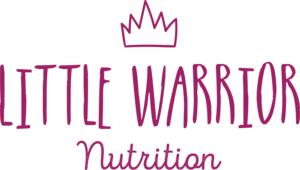Iron and Fertility: Low iron leads to low fertility
16 Sep, 2019
It is often well known that we require optimal iron stores and an increased supply of iron during pregnancy. In fact, during pregnancy our iron needs double. Since it is so critical that we optimize iron during pregnancy, most women will have their iron checked at some point during their pregnancy to ensure they have optimal levels. In addition, this is one of the nutrients added to prenatal multivitamins to ensure women are getting enough.
But what about preconception? Does iron status increase our chances of conceiving?
Research done on women with infertility showed that a deficiency in iron increases the risk of not conceiving by 60% compared to those women who had sufficient iron stores.1
These women with low iron were much more likely to suffer from anovulation (lack of ovulation) and even poor egg quality. These two outcomes make it that much more difficult to make a baby.
Reasons To Optimize Iron Before Getting Pregnant
- The body uses iron to make hemoglobin, the substance in red blood cells that carries oxygen.
- When your iron is low, your body stops producing an optimal number of healthy red blood cells. These red blood cells carry oxygen to the ovaries, and uterus. Without enough oxygen, these organs are weaker, making it more difficult for them to develop healthy embryos.
- If conception does happen, lack of iron will cause the development of the embryo to suffer, which can lead to miscarriage.
- Ensuring iron stores are optimized going into pregnancy can help ensure the proper growth of the fetus, which is extremely critical during the first trimester.2
Get Your Serum Ferritin Tested
If you are not sure what your current iron status is, get it tested. Ask for your serum ferritin levels to be checked. This will show how much iron is being stored in the body. According to the Institute for Functional Medicine, the optimal serum ferritin range is between 40-70ng/mL. You will want to make sure your serum ferritin is in this level. If it’s not, we can help.
How Prevalent Is Iron Deficiency
According to the World Health Organization 30.2% of non-pregnant women are affected by anemia.3 This is a shockingly high percentage. Especially when you consider how detrimental iron deficiency is to the development of the fetus and in early childhood. Even during pregnancy, iron deficiency in the first trimester can have a much more negative impact on fetal growth than deficiency later in pregnancy (which is typically when iron status is tested).4
For vegetarian/vegan women, women who do not frequently eat red meat and organ meat, women who have had low iron in the past, women who work out frequently, etc. there is a much higher probability of deficiency. That being said, while it is essential that these women have their iron levels checked, we do suggest all women get tested BEFORE trying to conceive.
Consider the preconception stage as a time where you are building your body up to full health including optimizing all critical nutrients. Not only will this increase your chances of conception and reduce your risk of miscarriage, it will also help ensure you grow a healthy Little Warrior who is nourished to their full potential.
What To Do If You Are Deficient
When a serum ferritin blood test comes back and it is not in the optimal range, increasing iron in the diet and adding additional iron supplementation may be helpful.
The three best iron supplements on the market are the following:
- NFH Iron SAP: The form used in this supplement is iron bisglycinate. It has a wide absorption range which makes it a safe form, doesn’t cause digestive upset like other forms of iron, and tends to improve iron status better than other forms. The other great benefit is that it’s not very expensive!
- NFH Heme Iron SAP: Plant foods contain non-heme iron which is more poorly absorbed in comparison to heme iron found in animal foods. We often suggest starting with the NFH Iron SAP and then if you aren’t seeing success with this product, you could try the NFH Heme Iron.
- Maxi Health Liquid Iron: This is also an iron bisglycinate form but is provided in a liquid for individuals who have trouble swallowing capsules.
Together we can increase the chances of conception, reduce the risk of miscarriage, and improve the health of your Little Warrior by optimizing iron status preconception. Do you know what your serum ferritin levels are? If not, get them tested today. We look forward to supporting you through this journey and helping you to optimize your iron.
Sources:
- Sasikumar, S., Shyam Sundar, J., Dakshayani, D., Prabavathy, R., & Karthika, M. (2014). A study on significant biochemical changes in the serum of infertile women. International Journal of Current Research and Academic Review, 2(2), 96-115.
- Abu-Ouf, N. M., & Jan, M. M. (2015, February). The impact of maternal iron deficiency and iron deficiency anemia on child's health. Retrieved from https://www.ncbi.nlm.nih.gov/pmc/articles/PMC4375689/
- Global anaemia prevalence and number of individuals affected. (2008, July 9). Retrieved from https://www.who.int/vmnis/anaemia/prevalence/summary/anaemia_data_status_t2/en/
- Prevent iron deficiency anemia during pregnancy. (2017, February 15). Retrieved from https://www.mayoclinic.org/healthy-lifestyle/pregnancy-week-by-week/in-depth/anemia-during-pregnancy/art-20114455
